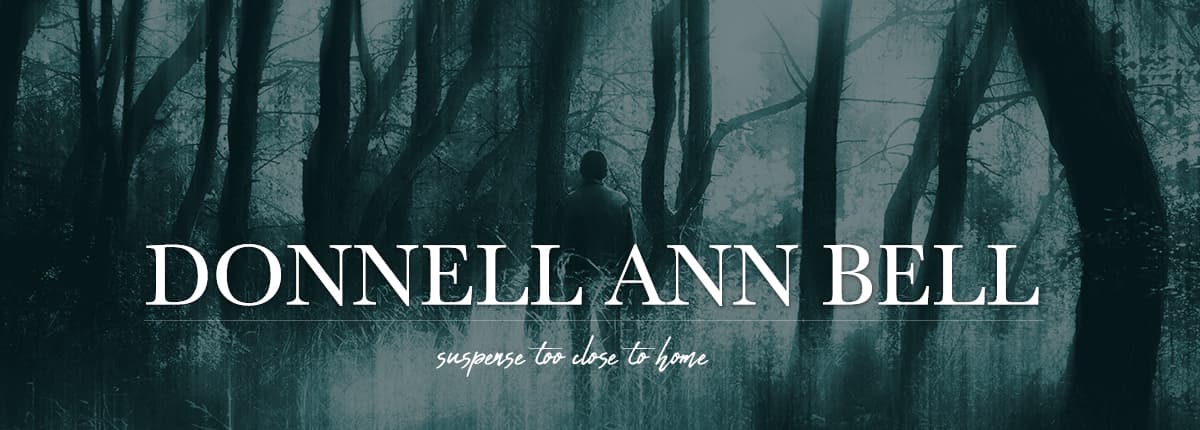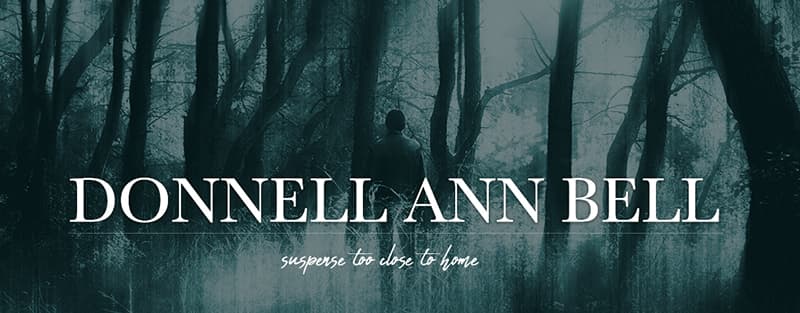 Author Michael A. Black is as generous as he is prolific. He’s been my guest on my blog and one of my favorites is his account of Warrantless in Chicago https://www.donnellannbell.com/warrantless-in-chicago/For short stories, you can’t go wrong reading “Waiting for Godot,” published in Alfred Hitchock Magazine.
Author Michael A. Black is as generous as he is prolific. He’s been my guest on my blog and one of my favorites is his account of Warrantless in Chicago https://www.donnellannbell.com/warrantless-in-chicago/For short stories, you can’t go wrong reading “Waiting for Godot,” published in Alfred Hitchock Magazine.
If you’re thinking of writing a series, the following is an excellent roadmap to help you on your way. Please welcome Michael A. Black, along with his alter egos, to Help From My Friends Friday. ~ Donnell
Tips for Writing a Series
By: Michael A. Black

Author Michael A. Black
Donnell asked me to write about tips for writing a series. I’ve done six to be exact. They are my Chicago-based mystery series featuring P.I. Ron Shade, my police procedural series about partners Frank Leal and Olivia Hart, a pulp series featuring the redoubtable Doc Atlas, five westerns in the Gunslinger series (as A.W. Hart), eleven books as Don Pendleton in the Executioner series, and my current Trackdown series. This is what I’ve learned through the school of hard knocks.
Come up with a Likeable Main Character
The first thing you need to do is to come up with a likeable main character who is someone the readers won’t mind following through an adventure or two… or maybe a few more. If your character’s a jerk, nobody will finish the book, much less think about reading another one. You have to know your character. Do a detailed character sketch of your main character detailing his background, his life, his aspirations, his fears, etc. You should also have a pretty good idea of what he looks like and who his friends and family are.
Friends, Family and a Supporting Cast Essential
Friends and family… It’s essential when doing a series to have character sketches on the supporting cast as well. I’d recommend creating that character bible featuring all your characters and periodically updating it. And include secondary and foil characters. Maintaining this log will ensure that you don’t have villains or new characters who are too similar to old ones in subsequent books. This isn’t to say that you can’t bring back some of these bad guys down the line. Having them recorded in your character bible is a great way of maintaining consistency.
Setting an Integral Element of your Story
Setting is also important. Figure out where your main character lives and where and how he gets around. Travis McGee had his famous houseboat and altered Rolls Royce, Jim Rockford had his trailer and his Firebird, and Kinsey Milhone had her VW Bug. In a series, setting becomes an additional character. In the first book in my Trackdown series, Devil’s Dance, ex-army ranger Steve Wolf gets out of prison after being unjustly convicted of a war crime. His friend and mentor picks him up and offers to let him stay in a small garage apartment. Wolf is still there seven books later, although he did temporarily move to Vegas for a while. Setting is an integral element of that character bible.
The Passage of Time
Another consideration is the passage of time. Using real life people and events puts a time stamp on your story. And time  marches on. So how should you age your series characters? After writing several novels in her series, fabulous Sue Grafton deliberately froze the time frame so that all of Kinsey’s adventures took place at the 1990s. Ed McBain didn’t stop time, but he did freeze the ages of his 87th Precinct crew. Perhaps the most artistic explanation of how to gracefully age your protagonist was coined by the great John D. MacDonald regarding the age of his series character, Travis McGee. “Travis ages at a slower rate than the rest of us,” MacDonald said in an interview. Well, after all, you’re only as old as you feel, right?
marches on. So how should you age your series characters? After writing several novels in her series, fabulous Sue Grafton deliberately froze the time frame so that all of Kinsey’s adventures took place at the 1990s. Ed McBain didn’t stop time, but he did freeze the ages of his 87th Precinct crew. Perhaps the most artistic explanation of how to gracefully age your protagonist was coined by the great John D. MacDonald regarding the age of his series character, Travis McGee. “Travis ages at a slower rate than the rest of us,” MacDonald said in an interview. Well, after all, you’re only as old as you feel, right?
Point of View
Also of prime importance is selecting the right point of view for your series. First person allows for a more intimate relationship between the reader and narrator. I used the first person for my Ron Shade books. First person narration is frequently used in mysteries. It allows the author to withhold certain aspects of the story because the reader vicariously discovers them at the same time as the protagonist. For my other series I used the third person limited, aka “close third person.” These books are more thrillers than mysteries and I needed to build suspense by using multiple points of view. Thus, as Steve Wolf is struggling to clear his name and regain his MMA championship in Devil’s Lair, he is unaware that at the same time there are sinister forces plotting to do him in. Make sure the POV you choose is the best one to tell the story you want to tell.
Think Things Through
So, think things through as far as the overall story arc, and know who all your characters are in your series before you start writing. Remember, each novel must stand on its own, but also must remain true to the artistic vision of the series. Figure out what your overall theme for the series is, and make sure you maintain the tension over the course of however many books you write.
Good luck.
About the Book:
 Survival hangs by a thread…
Survival hangs by a thread…
After losing his hard-earned championship and a hefty purse, Steve Wolf, the battle-scarred ex-army ranger, is forced to take a risky fight against a relentless young contender on short notice. But as Wolf trains for the fight of his life, he can’t shake the ominous feeling that death is closing in once again. Little does he know, his arch-nemesis has unleashed two cunning ex-SAS assassins, paired with trigger-happy cartel gunmen, all bent on erasing Wolf and his mentor, Jim McNamara, from existence.
With witnesses falling and a federal case against the cartel in ruins, Wolf, McNamara, and Special Agent Lucien Pike set their sights on Mexico, chasing both a traitor and an irresistible reward. But betrayal thrives in the heart of darkness, dragging them into a merciless battle where survival is a blood-soaked quest with no mercy given or expected.
When death comes knocking, there’s no quarter given or expected. Don’t miss out on the adrenaline-packed journey. Order your copy now and witness a story of courage, determination, and the relentless pursuit of justice.
About the Author:
Michael A. Black is the award-winning author of 48 books, most of which are in the mystery and thriller genres. He has also written in sci-fi, western, horror, and sports genres. A retired police officer from the Chicago area, he has done everything from patrol to investigating homicides to conducting numerous SWAT operations. Black was awarded the Cook County Medal of Merit in 2010. He is the author of over 100 short stories and articles, and wrote two novels with television star, Richard Belzer (Law & Order SVU). He did eleven novels under the name Don Pendleton in the Executioner series and numerous westerns the Gunslinger series under the name A.W. Hart (Killer’s Choice, Killer’s Brand, Killer’s Ghost, Killer’s Gamble, and Killer’s Requiem).His Executioner novel, Fatal Prescription, won the Best Original Novel Scribe Award in 2018. His latest novels are Chimes at Midnight and the ongoing Trackdown series, the latest of which are Devil’s Vendetta, Devil’s Breed, and Devil’s Reckoning. He is exceptionally proud that his latest short story, “Waiting for Godot,” was featured on the cover of the prestigious Alfred Hitchcock’s Mystery Magazine.











Mike, welcome back, and thank you for sharing your expertise!
This was terrific—so concise and practical. Thank you—was a good reminder as I end one series and start another.
Oh, Sue, perfect timing. Can’t wait to see what you comoe up with!
Thanks, Sue. I’m glad you got something out of my blog post. And thanks to You, Donnell for giving me the opportunity to be on your blog once again.
Great advice in each section. Thank you for sharing them.
Thanks, Steve, and thanks for stopping by.
Straight and to the point. Like a “cold shot” should be. Great advice. Thanks.
JJ
Good advice from a Master Author! I’ve read several of Mike’s books of different genres and have been impressed how easily he switchs settings. Thanks,Mike for the sage advice!
Loved the quote about Travis McGee aging more slowly than the rest of us. What’s his secret?? (ha!)
Donnell, thanks for bringing Mike Black for a visit. I’m writing book two in my first series. Mike’s suggestions will become ingrained in my writing.
Is there any chance you could persuade Mike to share one of his character bibles?
George, that’s a great idea, however, sharing his work is up to Mike 😉 His suggestions, including timeline and age of character, brilliant. Good luck with book two!!!
Many thanks to all of you who stopped by and commented. As far as George’s request for one of my character bibles, I’m thinking of doing that as part of the PSWA Pre-Conference Writer’s Workshop next time.
An excellent post, Donnell and Michael! Thanks for the tips. I use a “book bible” for all of my work and it helps so much. Thanks for the other ideas.